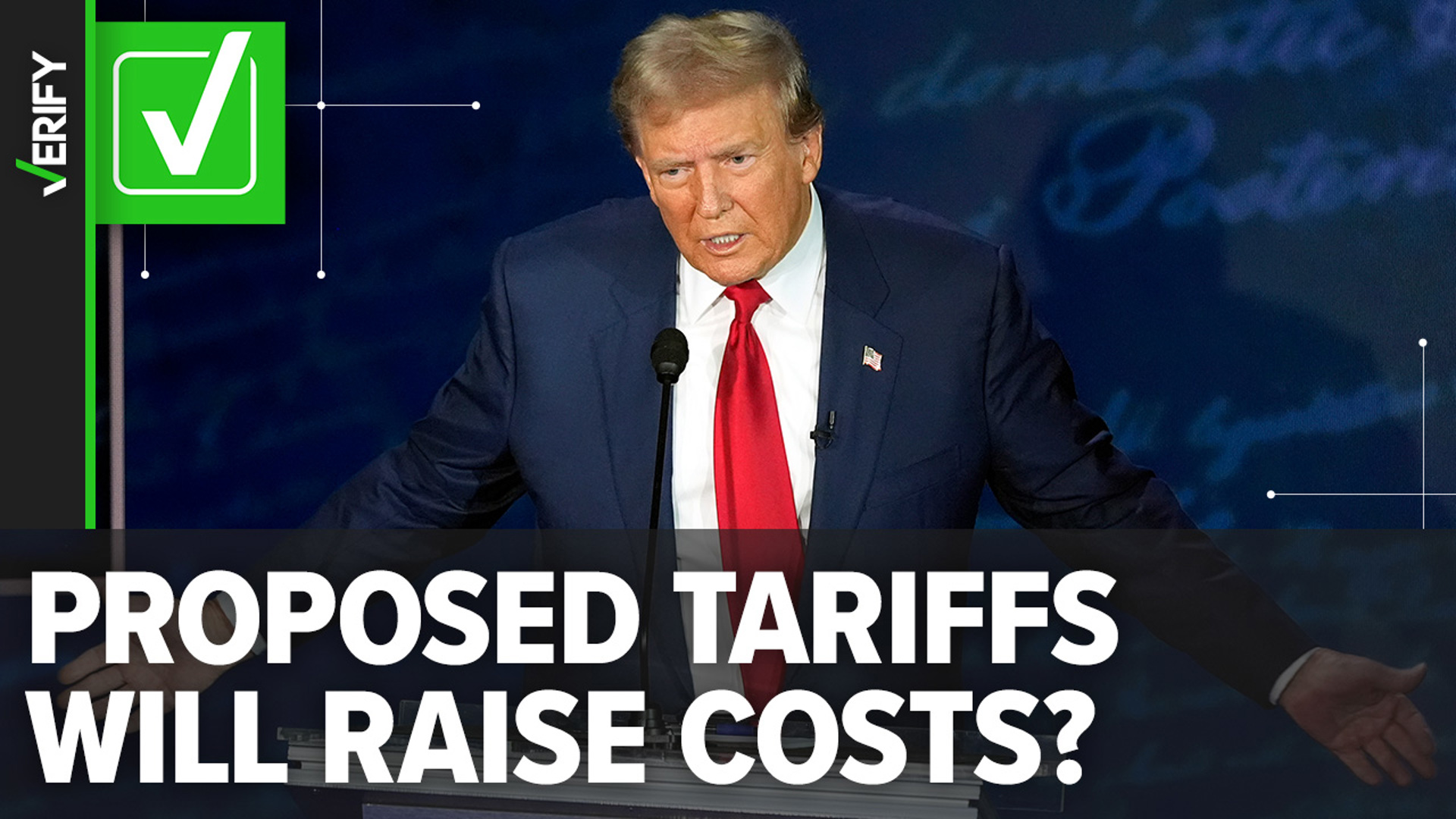How Canada And Mexico Can Thrive Amid US Tariff Disputes: A Trade Growth Strategy

Table of Contents
The imposition of US tariffs has created significant challenges for Canada and Mexico, disrupting established trade flows and impacting economic growth. However, this adversity also presents an opportunity for both nations to strengthen their economic ties and develop a robust trade growth strategy that mitigates the impact of future trade conflicts. This article explores strategies for Canada and Mexico to not only survive but thrive in the face of US tariff disputes.
Diversifying Trade Partnerships
The over-reliance on the US market leaves both Canada and Mexico vulnerable to the unpredictable nature of US trade policies. Diversifying trade partnerships is crucial to building economic resilience and mitigating the impact of future US tariff disputes.
Reducing Reliance on the US Market
To lessen dependence on the US market, several key actions are needed:
- Explore new trade agreements: Actively pursue and expand trade agreements with nations in Asia (through the CPTPP, for example), Latin America, and the European Union. These agreements offer access to new markets and reduce reliance on a single trading partner.
- Invest in trade infrastructure: Significant investment in port infrastructure, transportation networks, and logistics will facilitate smoother and more efficient trade with diverse partners.
- Develop targeted export promotion strategies: Governments should actively support businesses in exploring and entering new international markets through targeted export promotion programs, trade missions, and marketing initiatives.
Over-dependence on the US market is a significant risk factor. Diversification is not merely a strategy for growth; it's a necessity for economic security in the face of unpredictable trade relations.
Strengthening Regional Trade Alliances
Existing regional alliances, particularly the USMCA (United States-Mexico-Canada Agreement), provide a foundation for collaboration and mutual support. Strengthening these alliances is vital:
- Enhance USMCA collaboration: Utilize the USMCA framework to address shared challenges arising from US trade policies, fostering closer cooperation and mutual support.
- Explore joint ventures and investment opportunities: Encourage joint ventures and cross-border investments between Canadian and Mexican businesses to strengthen economic ties and reduce reliance on the US market.
- Develop coordinated responses: Establish mechanisms for coordinated responses to future US trade policies, allowing for unified action and a stronger negotiating position.
Strengthening regional alliances not only mitigates the impact of US tariff disputes but also creates opportunities for greater economic integration and shared prosperity.
Investing in Domestic Industries and Innovation
Investing in domestic industries and fostering innovation are vital for building long-term economic resilience and reducing vulnerability to external trade shocks.
Promoting Value-Added Manufacturing
Shifting towards value-added manufacturing can significantly enhance competitiveness:
- Invest in advanced technologies and skilled labor: Investing in advanced manufacturing technologies and upskilling the workforce will lead to higher-value exports, less susceptible to tariff impacts.
- Focus on less susceptible sectors: Identify and support industries and sectors less vulnerable to US tariffs, prioritizing their growth and development.
- Encourage research and development: Incentivize research and development in innovative sectors to create new export opportunities and technological leadership.
Value-added manufacturing reduces reliance on low-margin exports and builds a more resilient and competitive economy.
Supporting Small and Medium-Sized Enterprises (SMEs)
SMEs form the backbone of many economies. Supporting their growth is crucial for diversification:
- Provide financial support and export assistance: Offer financial incentives, export subsidies, and trade promotion programs specifically designed to help SMEs navigate international markets.
- Develop targeted training programs: Provide training programs to equip SMEs with the skills and knowledge needed to compete in global markets.
- Facilitate access to new technologies and markets: Support SMEs in adopting new technologies and accessing new markets through mentorship programs, networking opportunities, and regulatory simplification.
Empowering SMEs enhances their competitiveness and contributes significantly to broader economic diversification.
Enhancing Trade Negotiation Strategies
Proactive and strategic trade negotiations are key to mitigating the impact of future US tariff disputes.
Proactive Dispute Resolution
Effective dispute resolution requires planning and resources:
- Invest in legal expertise: Build capacity in legal expertise specializing in international trade law to effectively navigate trade disputes and advocate for fair trade practices.
- Develop early warning mechanisms: Establish robust early warning systems to identify and prevent potential trade conflicts before they escalate.
- Engage in proactive dialogue: Maintain open and constructive dialogue with the US government to address trade concerns and prevent future disputes.
A proactive approach to dispute resolution minimizes disruptions and fosters a more stable trade environment.
Building Stronger International Alliances
Building alliances enhances negotiating power:
- Collaborate with other nations: Partner with other countries facing similar trade challenges to share best practices and develop collective strategies.
- Form coalitions for fair trade: Form coalitions to advocate for fairer trade practices at international forums and exert greater influence on global trade governance.
- Engage actively in international trade organizations: Participate actively in organizations like the WTO to shape international trade rules and norms.
Strengthening international alliances creates a more level playing field and protects against unfair trade practices.
Conclusion
The imposition of US tariffs has presented significant challenges to Canada and Mexico. However, by proactively diversifying trade partnerships, investing in domestic industries, and refining trade negotiation strategies, both nations can not only mitigate the negative impacts of US tariff disputes but also pave the way for sustained trade growth and economic prosperity. Embracing a comprehensive strategy that addresses these key areas will be essential for navigating future trade uncertainties and ensuring long-term economic resilience. To learn more about developing your own successful strategy for mitigating the effects of US tariff disputes, explore resources from your national trade agencies. Don't let US tariff disputes define your future; proactively shape your trade strategy for enduring success.

Featured Posts
-
 The Rtx 5060 Debacle What Went Wrong And What It Means For Future Gpu Releases
May 26, 2025
The Rtx 5060 Debacle What Went Wrong And What It Means For Future Gpu Releases
May 26, 2025 -
 A Critical Look At The Later Works Of Armando Iannucci
May 26, 2025
A Critical Look At The Later Works Of Armando Iannucci
May 26, 2025 -
 The Lion Kings Land Of Sometimes Tim Rices Involvement Revealed
May 26, 2025
The Lion Kings Land Of Sometimes Tim Rices Involvement Revealed
May 26, 2025 -
 F1 Legends Over 40 Analyzing Their Post Prime Performance
May 26, 2025
F1 Legends Over 40 Analyzing Their Post Prime Performance
May 26, 2025 -
 A Frase Iconica Que Marcou Uma Geracao 20 Anos De Um Filme Visceral
May 26, 2025
A Frase Iconica Que Marcou Uma Geracao 20 Anos De Um Filme Visceral
May 26, 2025
